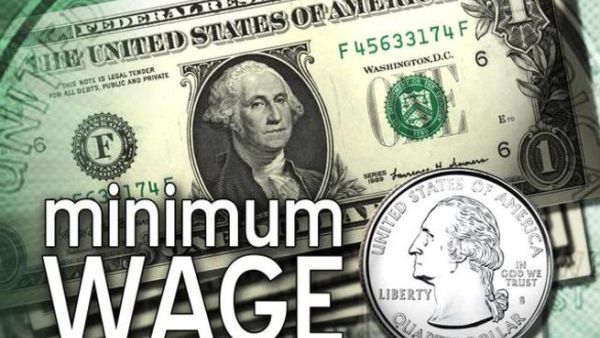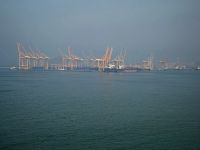Representatives of the private sector in Lebanon voiced their strong objection Friday to any attempt to raise the minimum wage to LL1.2 million ($800). The representatives, who held an exceptional meeting to review the demand of the labor unions and transportation associations, also warned that the planned strike on Sept. 15 to compel the government to raise the minimum wage and reduce gasoline prices will make the situation more complicated.
“The private sector expressed its deep concern over the negative economic indicators due to the persistent political crisis in the country,” the representatives said in a statement after the meeting. The statement added that demands of the General Labor Confederation to adjust the minimum wage come at a critical time in the country. But the private sector did not totally reject the idea of improving the social and medical benefits. “The issue of the minimum wage requires an open dialogue with all concerned parties to reach a common understanding,” the representatives said. Labor and public transportation unions argue that the high cost of living has eroded the incomes of small-wage earners.
Most statistics show prices of commodities in the first six months of 2011 have jumped over 18 percent although the Central Bank still insists inflation in Lebanon only stands at 6 percent. Finance Minister Mohammad Safadi told The Daily Star earlier that the government may consider either raising the minimum wage to acceptable levels or improve the social or medical benefits of the citizens. But it is almost certain the government is not too enthusiastic to comply with the labor unions’ demands to raise the minimum wage to LL1.2 million, fearing this move could prompt some companies to lay off staff and even shut down their businesses.
The General Federation of Labor Unions accused the private sector of pressuring the government in a bid to counter labor unions’ demands to raise the minimum wage. “Business associations put great pressure on the government to disregard this demand [to raise the minimum wage] and it prevented Parliament from discussing the issue despite the labor sector’s determination to discuss and finalize it,” Maroun al-Khawli, head of the General Federation of Labor Unions, said in a statement.
Earlier this year, labor unions began pressing the government to increase the minimum wage, which currently stands at LL500,000, to LL1.2 million following the rise of inflation rates and fuel prices. Although inflation rates fell slightly to an annualized rate of 2.26 percent in July from 2.82 percent in June, analysts believe that the real rate is much higher and it might increase in the coming months. The government raised the minimum wage by LL150,000 in 2008, the first adjustment since 1996, despite calls by trade unions to increase it to almost LL900,000.
Head of the Beirut Chambers of Commerce and Trade Mohammad Choucair rejected the labor sector’s proposal, saying that it would only place a heavy burden on private businesses as some might not be able to endure the increase. “Ten percent of companies may be able to handle an increase, while some would be forced to completely shut down … others would be forced to lay off 20 to 30 percent of workers, which would lead to increasing unemployment,” Choucair told a local newspaper in an interview published last week. Khawli said that the majority of parliamentarians are themselves business owners, a fact that would have a signifcant effect on the chances of such a proposal being passed or even discussed in Parliament. “We urge the government to free itself from the hegemonic nature of business owners over its decision and speed up the process of correcting the minimum wage,” Khawli said, warning that neglecting the proposal would only lead to social instability.
Economy Minister Nicolas Nahhas has said that the government is looking into the possibility of raising the minimum wage, but nothing substantial has been done yet.








